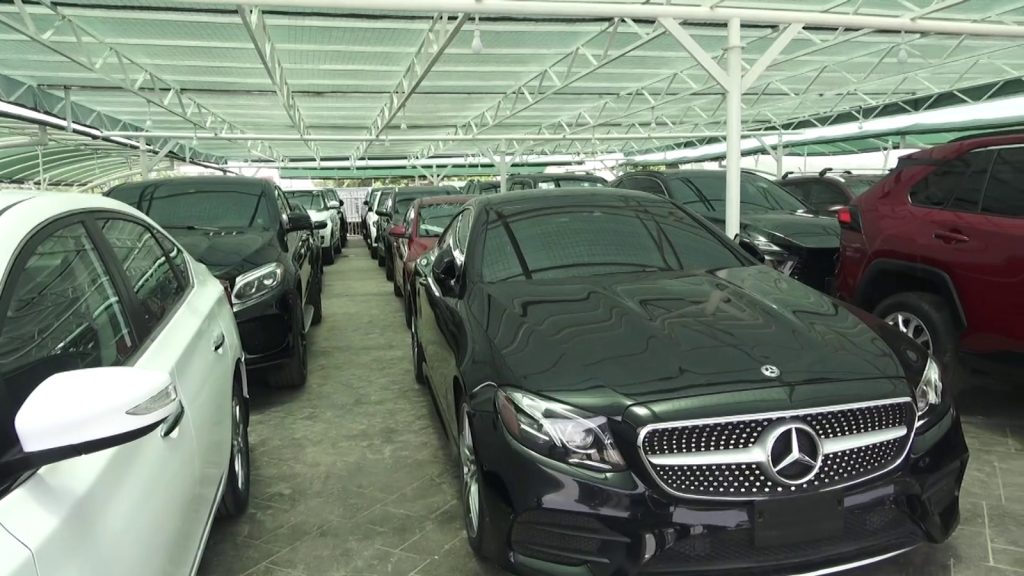For years, buying a car in Ghana has been expensive, whether brand-new or second-hand. The high cost has largely been due to the exchange rate between the Ghanaian cedi and the US dollar, making imports more expensive for dealers and consumers alike. However, things have changed since the new administration led by President John Mahama took the reins of government. For the last five months, the local currency has seen an appreciation against major trading currencies, including the dollar.
Experts believe that if the appreciation continues, this could lead to cheaper vehicle imports and lower prices for buyers.
Cedi gains and vehicle prices
The Ghanaian cedi has been one of the best-performing currencies globally, strengthening against the US dollar and reducing the cost of imports. According to Citi Business News, car dealers are optimistic that vehicle prices could soon drop if the cedi remains stable.
Ghana’s car market has long been influenced by exchange rate fluctuations, which affect import costs, and port duties and taxes, which add extra expenses to vehicle imports. With the cedi gaining value, future vehicle imports could be cheaper, potentially resulting in a drop in retail prices.
Will car prices actually go down?
While the cedi’s appreciation is promising, current retail prices remain high because many cars on the market were imported when the exchange rate was weaker. However, as new shipments arrive, dealers expect gradual price reductions.
Clifford Ansu, General Secretary of the Second-Hand Car Dealers Association, confirmed that customers are already demanding price reductions.
“When the dollar reduces, every commodity in the market reduces. We have something in economics called consumer behavior,” he explained.
“Consumers visit different locations Achimota, Circle and compare prices. If one dealer is selling a car for GHȼ20,000 and another is pricing it at GHȼ100,000, they will go where the price is lower. That consumer behavior is what will determine how far we should go in reducing prices.”
Car buyers are keeping a close eye on dealers, expecting them to adjust prices in line with the cedi’s gains.
“Everybody in the system is aware that the dollar is coming down. People are asking, ‘Now that the dollar is down, why don’t you also reduce your car prices so we can afford one?’ That is the situation we are facing,” Ansu told Citi Business News.
He remains optimistic that if the cedi’s gains remain stable, car prices could start dropping within a month or two, making vehicle ownership more affordable for Ghanaians.
Could Ghana see more vehicle imports?
If the cedi remains strong, Ghana could see a rise in vehicle imports, as lower costs make it easier for businesses to bring in more cars. Typically, when the exchange rate favors the cedi, importers take advantage of the lower costs to increase shipments, offering a wider variety of vehicles to buyers.
Industry analysts believe that if the cedi’s stability continues over the next few months, more vehicles could enter the market, increasing competition and possibly driving prices even lower. This could benefit both car dealers and consumers, making vehicle ownership more accessible.
However, some importers remain cautious. Alexander Osei Assibey, a car dealer, warned that government trade and import policies will also play a role.
“If duties and taxes remain high, even with a strong cedi, importers may hold back on bringing in large volumes of cars,” he said.
That said, many dealers agree that a combination of a stable cedi and lower import costs could lead to higher vehicle imports, offering buyers better choices at more competitive prices in the coming months.
Looking ahead
The biggest question now is whether the cedi’s strength will last. Some experts worry that if the currency weakens again, car prices could rise once more.
“We are praying this is not a nine-day wonder,” Assibey remarked, urging the government to stabilize the exchange rate at ports for at least six months to give importers confidence.
For now, Ghanaian car buyers can remain hopeful. If the cedi continues to perform well, cheaper cars and increased vehicle imports could soon be a reality, making transportation more accessible for many Ghanaians.




